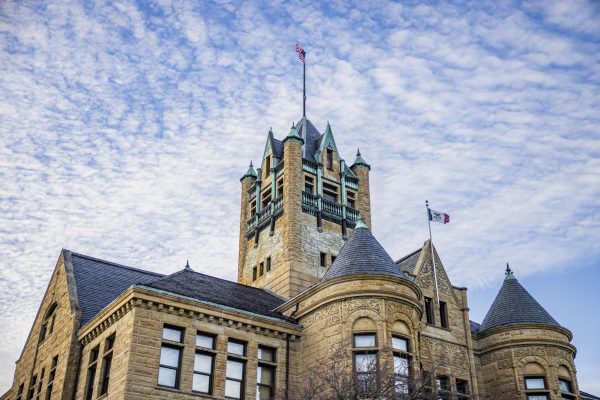PETA calls for ending animal research at the UI
The animal rights organization sent an email urging the UI to end animal research and prohibit new studies, saying current actions in response to COVID-19 would likely result in the killing of animals.
The Old Capitol building is seen in 2018.
March 31, 2020
The animal rights organization People for the Ethical Treatment of Animals called for the University of Iowa to shut down all animal experiments Friday following changes made by the Office of Animal Resources in response to COVID-19.
In a letter addressed to President Bruce Harreld, the organization urged the university to prohibit any new animal experiments, prohibit breeding and acquisition of new animals, end all ongoing experiments, and prove that ongoing experiments are advancing human health.
The letter makes reference to a recent memo from the Office of Animal Resources, which directed UI researchers to “begin identification of non-critical animal assets and/or existing naive cohorts that will not be able to be utilized for planned experiments and assist in arrangements for their disposition” as part of the response to COVID-19.
In a press release Friday, PETA media manager Tasgola Bruner said these actions would “likely lead to the killing of hundreds or more animals.”
“The COVID-19 pandemic should be a moral and scientific reckoning for the school, which conducts deadly experiments on animals,” the press release said. “If the university can’t prove that the animals used in its experiments are needed—which we know it can’t—it shouldn’t be wasting taxpayer money on them.”
The Office of Animal Resources memo also announced the suspension of movement of animals between facilities, new animal orders, new animal deliveries, and breeding of commercially available animals.
In an email to The Daily Iowan, UI Strategic Communications Director Stephen Pradarelli said all research involving animals at the university is necessary, but the COVID-19 outbreak has resulted in reduced staff and activities in labs.
“A few exceptions have been made for studies of COVID-19 and research that involves subjects who must continue receiving life-saving treatments as part of a study,” he said. “The university is taking a number of measures to safeguard animals in active studies and to manage others with utmost consideration for their welfare.”















